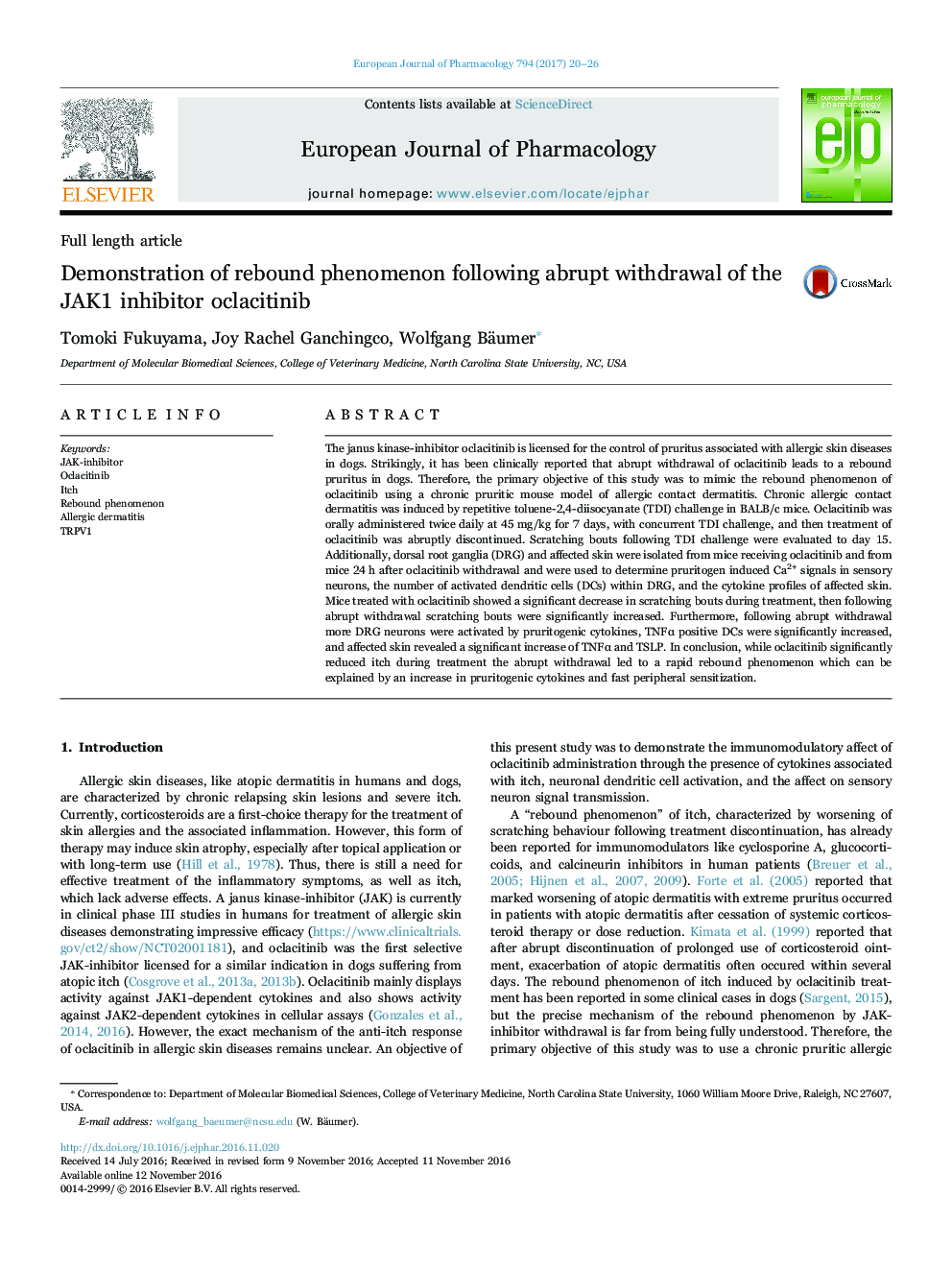| Article ID | Journal | Published Year | Pages | File Type |
|---|---|---|---|---|
| 5554913 | European Journal of Pharmacology | 2017 | 7 Pages |
The janus kinase-inhibitor oclacitinib is licensed for the control of pruritus associated with allergic skin diseases in dogs. Strikingly, it has been clinically reported that abrupt withdrawal of oclacitinib leads to a rebound pruritus in dogs. Therefore, the primary objective of this study was to mimic the rebound phenomenon of oclacitinib using a chronic pruritic mouse model of allergic contact dermatitis. Chronic allergic contact dermatitis was induced by repetitive toluene-2,4-diisocyanate (TDI) challenge in BALB/c mice. Oclacitinib was orally administered twice daily at 45 mg/kg for 7 days, with concurrent TDI challenge, and then treatment of oclacitinib was abruptly discontinued. Scratching bouts following TDI challenge were evaluated to day 15. Additionally, dorsal root ganglia (DRG) and affected skin were isolated from mice receiving oclacitinib and from mice 24 h after oclacitinib withdrawal and were used to determine pruritogen induced Ca2+ signals in sensory neurons, the number of activated dendritic cells (DCs) within DRG, and the cytokine profiles of affected skin. Mice treated with oclacitinib showed a significant decrease in scratching bouts during treatment, then following abrupt withdrawal scratching bouts were significantly increased. Furthermore, following abrupt withdrawal more DRG neurons were activated by pruritogenic cytokines, TNFα positive DCs were significantly increased, and affected skin revealed a significant increase of TNFα and TSLP. In conclusion, while oclacitinib significantly reduced itch during treatment the abrupt withdrawal led to a rapid rebound phenomenon which can be explained by an increase in pruritogenic cytokines and fast peripheral sensitization.
